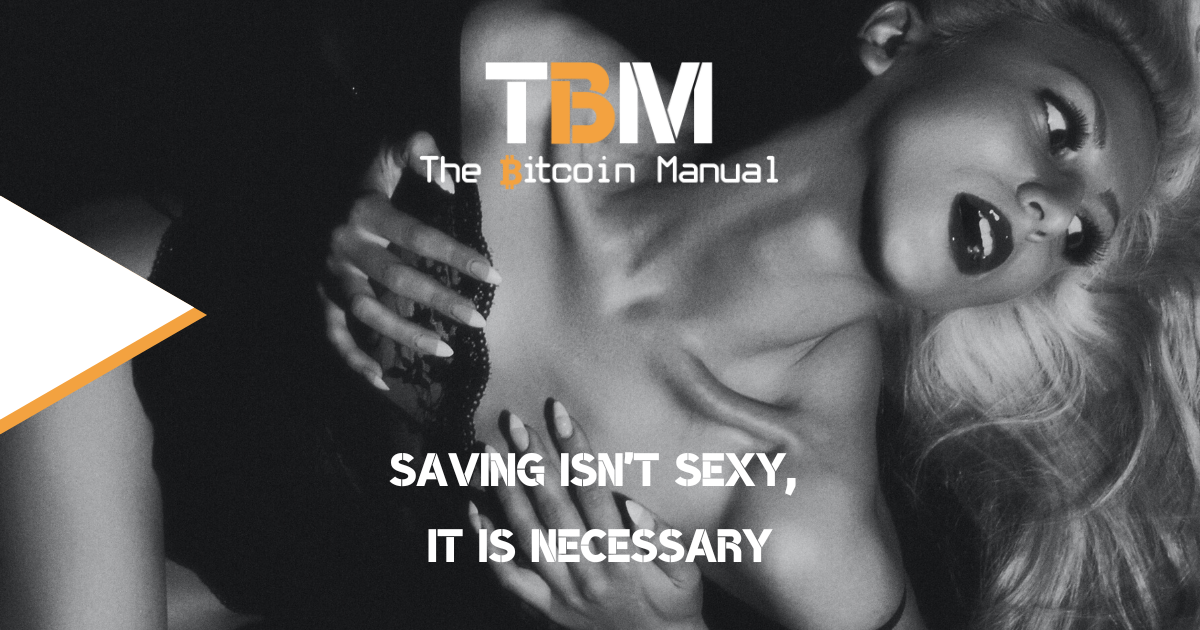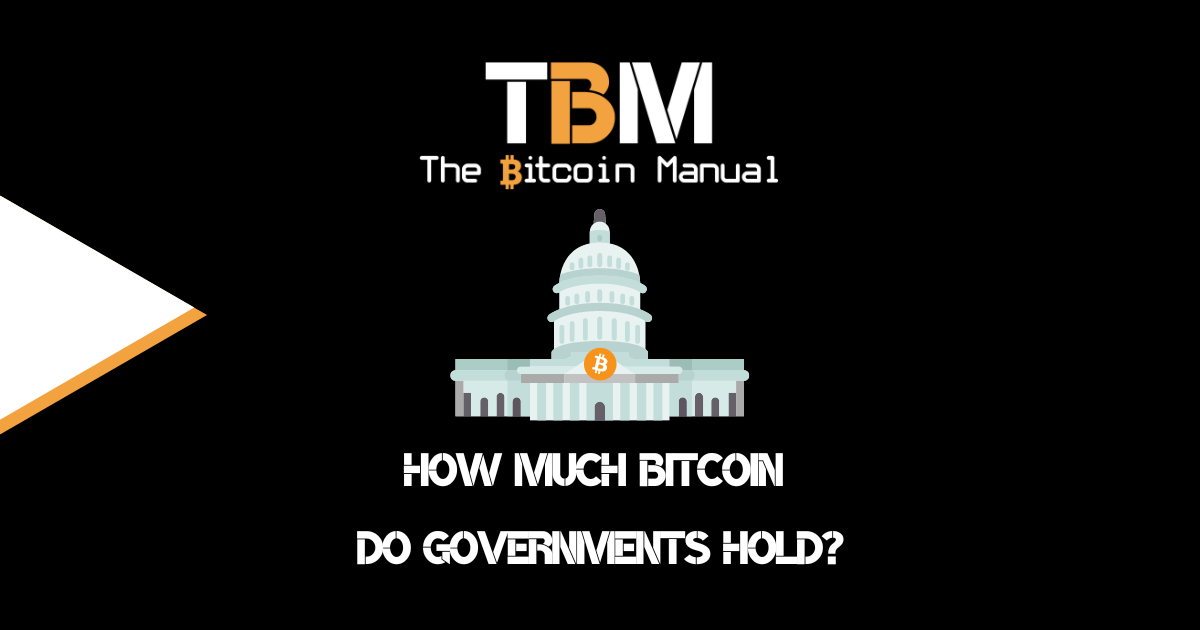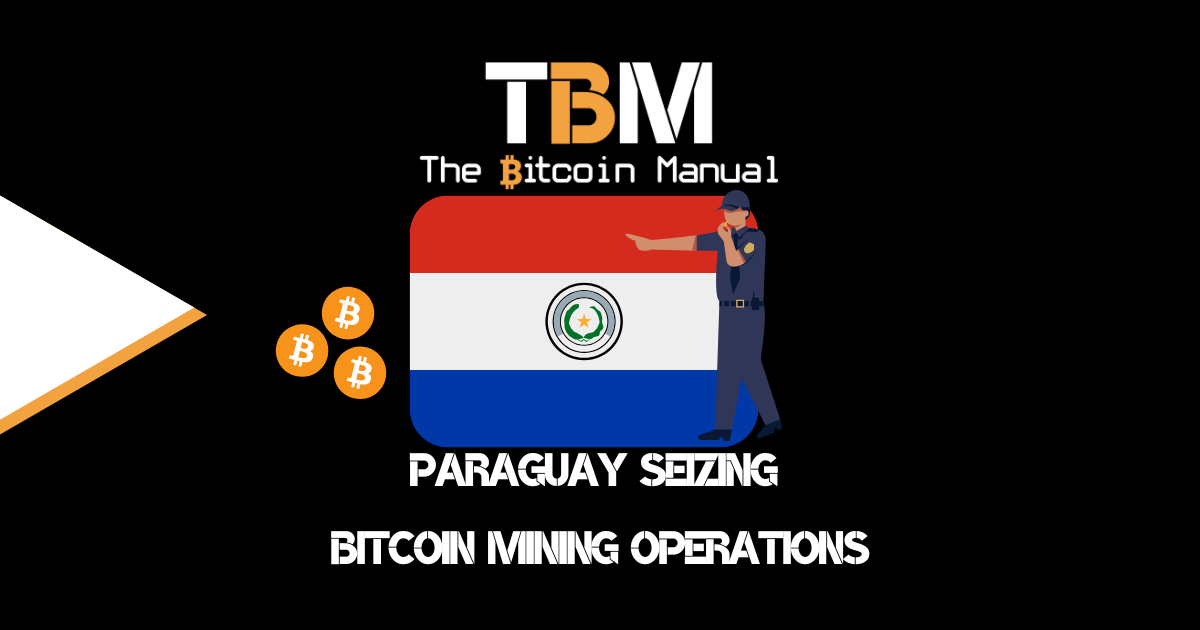As inflation continues to erode our ability to save, those of us who cannot were not lucky to have assets passed down, have access to lines of credit or cannot earn a salary large enough to acquire assets are forced to save in cash. I don’t think it takes a genius to understand that saving in cash for any extended period of time has not been a good vehicle for success.
Regardless of the amount of interest your bank can pay you, the effects of compounding inflation year on year will erode any of those gains as well as your ability to save as more of your disposable income is deployed to sustain your lifestyle.
Currency debasement is one of the primary drivers of the high cost of living in around the world, and saving money for a rainy day is little more than a dream to many people, but it need not be. It should be easy to save, so what the hell has gone wrong?
Why people don’t or can’t save
But before we get into the nitty-gritty of saving, lets consider the reasons why people say they are not saving money today:
- “I’m not earning enough”: What is enough? Do you believe that the more you have, the more you will save? What you are likely to discover is the more money you have, the more debt you have too. Regardless of your income, you can start saving money today.
- “I have to pay off debt”: There is a reason people refer to “drowning” in debt. It is not a healthy position to be in, debt can be useful for certain things, but the cheap access to money has seen people take on debt for not only big ticket items but as far as consumer goods.
- “Budget? What budget?” Sure some of us don’t have the ability to save on the lower rung of the income scale but those that can don’t because they don’t plan to save. Not budgeting is probably the biggest reason people are unable to save money. If you don’t take note of where your money goes it’s likely to end up leaving you for someone who does.
- “I don’t have a goal”: You are unlikely to save money if you are not saving with a target in mind, when people don’t have an incentive to save, there is no reason to save.
- “My expenses are too high!” If your living expenses are eating your salary up and leaving you nothing to save, you need to scrutinise your spending. The only way to save is to spend less than you make, that’s a fact none of us can escape.
Savings have been stolen from us
Saving in cash is a losing game, for every year you hold cash you’re subject to the hidden tax that is the inflation rate of your local currency. Inflation is a sinister tax because, unlike other taxes where you see the value in a nominal figure removed from your possession, inflation takes it through accounting tricks similar to a magician using sleight of hand.
The figure in your bank account may increase as you put more money into the account. The figure may also increase as your interest payments are added, but what you don’t see is that at the end of that year, the amount of money you saved and earned combined does little to offset the losses in purchasing power you have lost by the end of the year.
So you have more money, but that money can give you access to fewer goods and services in the future. Inflation robs savers and rewards debtors. Those who take out debt need not worry about inflation as they aren’t saving. They want inflation to increase so that their debts are easier to pay.
Inflation is a wealth tax that steals from savers and hands it over to those who can access debt and those that prefer to speculate on assets.
We don’t have a culture of savings
So what does it mean to save? At a basic level, it means going out and providing value in the marketplace, taking that value and differing it into the future. When you earn an income, you choose not to spend on consumption and putting money aside on a regular basis with some goal in mind.
You can save formally through a bank or financial institution. Unfortunately, the majority of savings taking place in formal banking is placed in call or savings accounts that offer interest rates below inflation, resulting in most people losing money over time.
Others choose to save informally, be that through cash holdings, jewellery or precious metals. Those that choose to save informally are either unbanked or have a general distrust of banking institutions due to the high administrative and transaction fees – you may be more likely to lose the value of your money in a bank than saving through other methods. Another reason for informal saving is due to financial products being exclusionary for low-income earners. Many savings products like fixed deposit savings accounts impose some penalty on access to their savings and may have minimum investment amounts.
Sexy speculators over prissy prudence
If you look at any social media content around finance if you spend any time watching movies or documentaries that cover finance, what do you see? Do you see people talking about the guy who worked odd jobs or the woman who spent her career saving towards her goals? No, that’s boring. Who is going to watch that?
What you see are people who speculated on assets like real estate or stocks, focused on taking risks to run their start-up, got preferential access to capital through connections they had and hit the big time. Today’s culture is about hustling; it’s about speculating, it’s about taking risk, it’s about taking on debt; that’s how we’re told to get ahead, not saving.
We’re encouraged to become the next wolf on your street rather than the being patient and frugal. That’s one of the reasons why we have so many people focusing on how they can get rich quick rather than accumulate wealth slowly.
You hardly hear the world savings anymore, it’s been replaced by the term “investing” and if you’re not investing, you’re falling behind.
What does saving give us?
Since the current financial incentives pushes us away from saving and into investing, we not only take on more risk, but we also lose a host of important factors that drive self-determination and our ability to thrive as an individual. The lack of savings means a lack of sovereignty, it means a lack of actionability, and it encourages a high level of dependency on centralised institutions like the banks, corporates and of course, governments.
When you are stripped of the ability to save you are out on the following:
1. Savers can seize the moment
Good deals come and go and as market speculators get washed out for placing bad bets, it’s up to savers to come in and reconstruct the market To take advantage of a red-hot bargains, you’ve got to be ready and able to deploy capital. By living below their means, savers generate and bank a monthly surplus. That additional purchasing power can be used to capture distressed assets like stocks, companies, real estate or commodities and help reduce the volatility as well as provide a floor for future stability.
2. Savers aren’t beholden to lenders
In some fashion, borrowers always answer to their lenders. There’s nothing particularly wrong with strategic borrowing for investment purposes. However, borrowing and chronic debt can sap our wealth and energy, making life seem much more restricted. By contrast, a saver is freer to make bold choices, reinvent a career, take risks, take some time off and enjoy the optionality that life has to offer. That combination of flexibility and freedom is a rare quality these days.
3. Savers swim against the tide
Consumption has become a national sport, the moment income hits the wallet of the average consumer, it’s deployed within the economy and it’s seen as stimulating and a good thing, we’re encouraged to consume, and not to save. A saver is a pioneer who chooses to ignore what the neighbours are doing and rejects the flawed logic that spending more is always better.
Savers provide capital surplus for contrarian viewpoints and are able to achieve more than the average consumer due to their low-time preference and ability to pull back and see the bigger picture. Savers are not driven by impulse but by facts and cost and benefit analysis.
4. Savers are strategic
Successful savers didn’t get that way by being indiscriminate with their money. They understand the innate and intimate connections between time, labour, money and things, and they apply that knowledge in tactical ways. Savers know that being a shrewd steward of money not because they are stingy but because they realise the effort it took to acquire that money, that the time and ability to acquire money from labour is limited and that the best deal is not always the first one.
5. Savers are more self-reliant
Speaking broadly, saving and self-reliance tend to go hand in hand. Savers see the value in self-reliance, and they build the skills that help them keep expenses low. From gardening to simple construction — from basic car repair to sewing — savers quietly and confidently get it done, usually without taking out their wallets. Having a population like this makes them annoying to centralised entities of power, they do not need the state, they do not need corporate involvement in every facet of their lives, and that means they are hard to exploit.
The TAM for savings is massive
When we consider that saving informally or formally is not going to cut it in today’s economic climate and with time, inflation only compounds and gets worse, all you’re left with is investing. Now investing isn’t easy, investing a full time job and it comes with risk. You have to know which asset class you need to pick, and what allocation based on your risk profile, and then you have to constantly adjust each year to ensure you’re not over-exposed to certain market conditions.
Savings is not meant to be that way; it’s meant to be a simple process; investing is not saving.
Bitcoin is the first savings technology that allows anyone access in any country, at any price. You can buy as many or as few fractions of a bitcoin as you like, starting with as little as one satoshi. Having so much of the world crying out for a way to save, bitcoin is targeting the largest total addressable market the world has to offer.
There are plenty of people with capital that only want to save, they are doing so in stocks, real estate, bonds, ETFs and a host of other financial products, but only doing so because they have yet to discover bitcoins as a superior savings solution.
As more people discover it, as the market becomes deeper and more liquid allowing for larger pools of capital to flow in and out, it will become even more attractive to bigger pools of savings.
Bitcoin is savings
Having considered all the options available to me as a modest pleb and having to be realistic on what I can access or afford to use, Bitcoin has been, without a doubt, the best savings technology I can find. The more of the network I acquire, the more confident I become and the more hopeful I am for the future.
I know as long as I protect my keys, I cannot be diluted, and I can tap into those savings at any time, anywhere in the world.
I know that the bitcoin supply cannot be manipulated and that others have to play by the same rules I do. That motivates me to work; I don’t even care what kind of work it is, as long as I can do it well and it provides me with optionality to save for the future.
Bitcoin gives me these tools and assurances through the fact that the supply is hard-capped and running my node; I can verify all of this and have no doubt that the coins I own are mine to hold. No one can take them from me or debase them, and having that level of certainty is a blessing when you’ve lived under uncertainty for so long.
Save your time and energy to save yourself
Have you started to channel the power of the time chain to lock the fruits of your labour into the bitcoin network? How has it worked out for you? Do you stay the course, or have you been tempted to head out to the casino? How has saving in bitcoin changed your perspective on things?
Let us know in the comments below. We love hearing from fellow bitcoiners from around the world.




